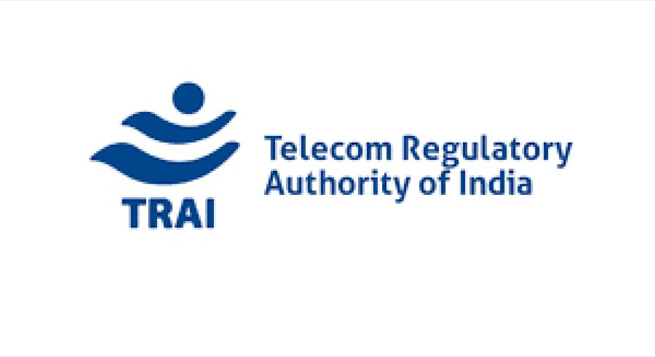Telecom Regulatory Authority of India (TRAI) on Saturday issued a consultation paper on issues related to New Regulatory Framework for Broadcasting and Cable services.
In consonance with the complete digitization of the cable TV sector, TRAI on March 3, 2017, notified the ‘New Regulatory Framework’ for Broadcasting and Cable services After passing legal scrutiny in Hon’ble Madras High Court and Hon’ble Supreme Court, the new framework came into effect from December 29, 2018.
Upon implementation of the New Regulatory Framework 2017, TRAI noticed some inadequacies impacting the consumers. As the New Regulatory Framework changed quite a few business rules, many positives emerged. To address certain issues that arose after the implementation of the new regulatory framework, after a due consultation process with stakeholders, TRAI on 01.01.2020 notified the New Regulatory Framework 2020.
According to a TRAI statement on Saturday, Some stakeholders challenged provisions of Tariff Amendment Order 2020, Interconnection Amendment Regulations 2020, and QoS Amendment Regulations 2020 in various High Courts including the Hon’ble High Court of Bombay and Kerala. Hon’ble High Courts upheld the validity of the New Regulatory Framework 2020 except for a couple of provisions.
The provisions related to Network Capacity Fee (NCF), multi-TV homes, and long-term subscriptions of New Regulatory Framework 2020, have already been implemented and due benefits are being passed on to the Page 2 of 3 consumers at large. Every consumer now can get 228 TV channels instead of 100 channels earlier, with a maximum NCF of Rs. 130/-. It has enabled consumers to reduce their NCF for availing of a similar number of channels as per the 2017 framework, by an estimated cost varying from Rs. 40/- to 50/-. Additionally, the amended NCF for multi-TV homes has enabled further savings to the tune of 60 percent on second (and more) television sets.
However, as per RIOs filed by the broadcasters, the new tariffs reflect a common trend i.e., the prices of their most popular channels including sports channels were enhanced beyond Rs. 20/-per month. Complying with the extant provisions, as regards the inclusion of pay channels in a bouquet, all such channels are priced beyond Rs. 12/- per month are kept out of the bouquet and are offered only on an a-la-carte basis. The revised RIOs as filed indicate wide-scale changes in the composition of almost all the bouquets being offered.
Immediately after new tariffs were announced, TRAI received representations from Distribution Platform Operators (DPOs), Associations of Local Cable Operators (LCOs), and Consumer Organizations. DPOs highlighted difficulties likely to be faced by them in implementing new rates in the system and migrating the consumers to the new tariff regime through the informed exercise of options impacting almost all bouquets, especially due to upward revision in the rates of pay channels and bouquets declared by broadcasters. Therefore, TRAI engaged with all the different associations and consumer groups including representatives of LCOs.
To deliberate on the various issues related to the implementation of the New Regulatory Framework 2020 and suggest a way forward, a committee consisting of members from the Indian Broadcasting & Digital Foundation (IBDF), All India Digital Cable Federation (AIDCF) & DTH Association was constituted under the aegis of TRAI.
The purpose of the Committee was to facilitate discussions among various stakeholders to come out on a common agreed path for smooth implementation of Tariff Amendment Order 2020. Stakeholders were advised to come out with an implementation plan with minimum disruptions and hassles to the consumers while implementing the New Regulatory Framework 2020.
The Committee listed several issues related to New Regulatory Framework 2020 for consideration. The stakeholders, however, requested TRAI to immediately address critical issues which could create impediments to the smooth implementation of Tariff Amendment Order 2020.
In order to address the issues as identified by the stakeholders’ committee; the Authority is issuing this consultation paper for seeking stakeholders’ comments on points/issues which are pending for full implementation of the New Regulatory Framework 2020. This paper primarily discusses issues related to discounts given in the formation of the bouquet, the ceiling price of channels for inclusion in a bouquet, and discounts offered by broadcasters to DPOs in addition to distribution fees.
Written comments on the consultation paper are invited from the stakeholders by May 30, 2022. Counter comments, if any, may be submitted by June 6, 2022.
The full details of the consultation paper could be accessed at: https://www.trai.gov.in/sites/default/files/CP_07052022_0.pdf
 PM Modi compares WAVES to Davos’ WEF in year’s last ‘Mann Ki Baat’
PM Modi compares WAVES to Davos’ WEF in year’s last ‘Mann Ki Baat’ 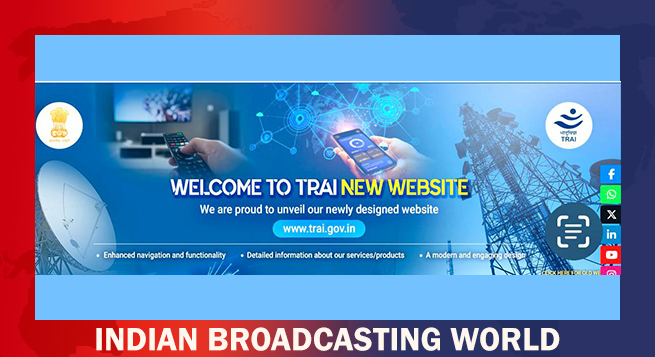 TRAI revamps website to connect with wider audience
TRAI revamps website to connect with wider audience  Viacom18 becomes direct subsidiary of Reliance Industries after share conversion
Viacom18 becomes direct subsidiary of Reliance Industries after share conversion  Diljit Dosanjh wraps up ‘Dil-Luminati India Tour’ with a grand finale in Ludhiana
Diljit Dosanjh wraps up ‘Dil-Luminati India Tour’ with a grand finale in Ludhiana 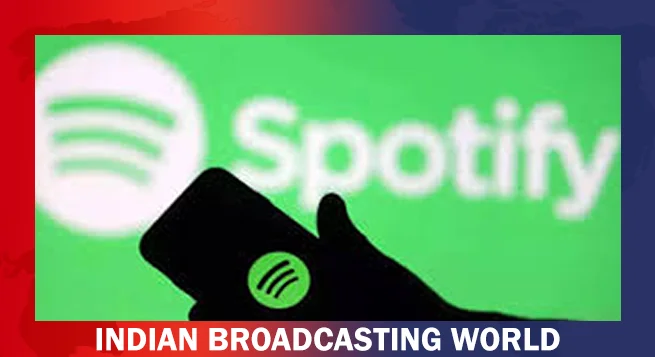 Spotify faces backlash as explicit content slips through moderation filters
Spotify faces backlash as explicit content slips through moderation filters 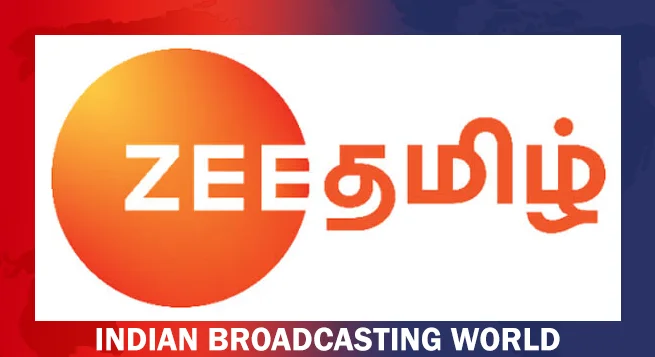 Zee Tamil ushers in 2025 with a spectacular New Year celebration lineup
Zee Tamil ushers in 2025 with a spectacular New Year celebration lineup 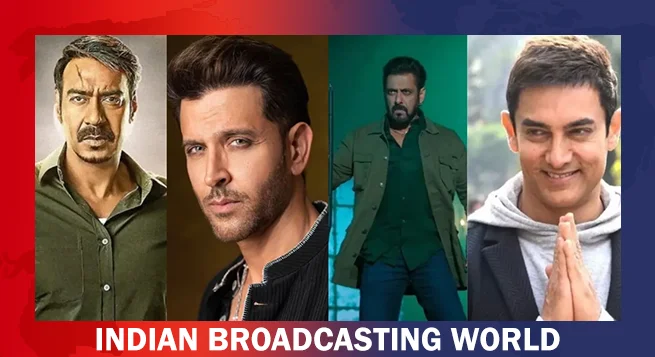 Salman Khan’s ‘Sikandar’, Aamir Khan’s ‘Sitaare Zameen Par’ headline a star-studded 2025 Bollywood lineup
Salman Khan’s ‘Sikandar’, Aamir Khan’s ‘Sitaare Zameen Par’ headline a star-studded 2025 Bollywood lineup 


